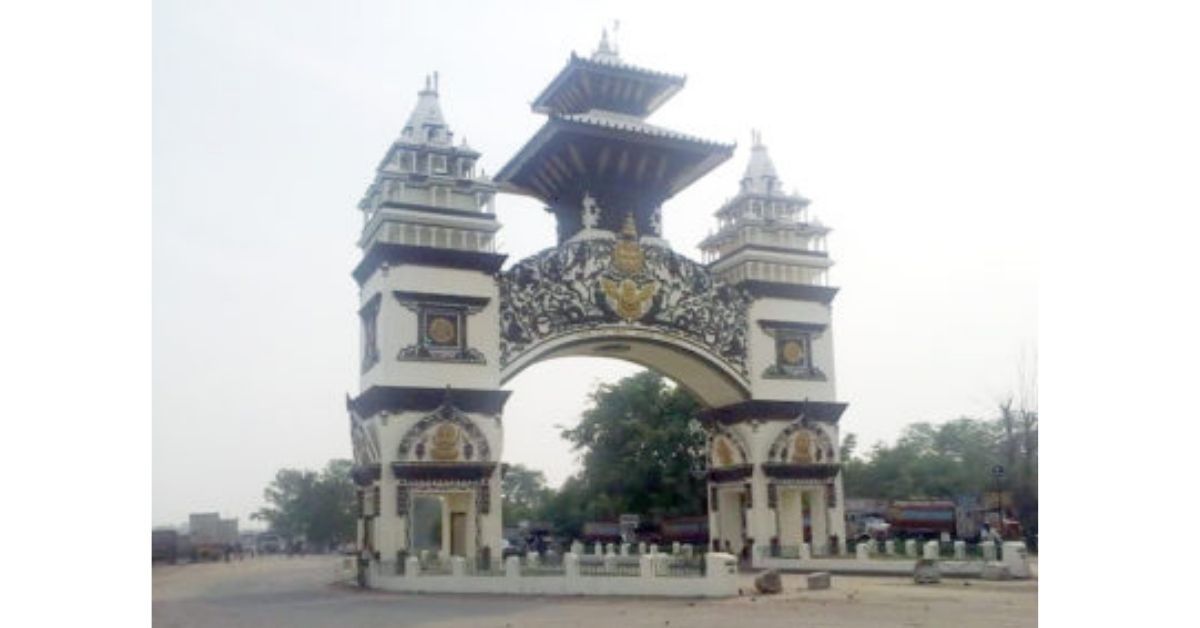The construction of a number of dry ports in the southern and northern border points, which were impacted by the Covid-19 pandemic, has slowed down.
The progress on the dry port in Rasuwa, near the China border, is rather disappointing. It’s just about 35 percent completed in the last three and a half years, say officials.
The construction work began in May 2019 with a completion deadline of May 2022.
Ashish Gajurel, executive director of the Nepal Intermodal Transport Development Board, the government agency that manages the inland clearance depots, said the Chinese government has sent a new contractor to complete the project.
“There were issues with the previous contractor,” said Gajurel, without elaborating.
He said that as China has been implementing a “zero Covid” policy, they have not been able to send workers to the site. “There are no construction materials either.”
Officials say they are not aware of any cost overrun in the project caused by the delays because the project is undertaken by the Chinese government. The facility is being built with Chinese aid amounting to 124 million Yuan, or Rs2.2 billion.
On May 12, 2019, the board signed an agreement with Tibet Fuli Construction Group Company Limited, to build the inland container depot at Timure, Rasuwa, which straddles a major trade route with China.
The Chinese company was to complete the facility in 30 months.
Rasuwa dry port is a gift from the Chinese government. When completed, it will have space for 350 container trucks. There will be a warehouse, parking lot, customs building, post office and a quarantine facility.
The facility is being built on 165 ropanis of land and is situated 2.5 km from the Nepal-China border.
Meanwhile, in the south, the Nepalgunj Integrated Check Post, which is being built on the Indo-Nepal border, is currently 60 percent complete.
The facility is being constructed with an Rs3.20 billion grant from the Indian government.
The contractor, Rajdeep Buildcon, an Indian company, has been given extra time until January 22, 2023, to complete the facility, according to Gajurel.
The construction work of the integrated check post which was started in May 2020 was delayed due to the Covid-19 pandemic.
Though the deadline is nearing, the project still has 40 percent of the work remaining,” said Gajurel. “We, however, have been assured that the contractor will complete the work within the extended deadline.”
Nepalgunj is the fifth largest trading point of Nepal and was chosen for the project as it is the closest to the Indian capital New Delhi, which would make imports by Nepal easier.
The progress of another dry port in Mustang, on the Nepal-China border, has also slowed.
“We are in the process of appointing a consultant to prepare a detailed project report (DPR) of Korala dry port in Mustang,” said Gajurel.
The groundwork will begin after the report is prepared. The construction of Korala dry port is estimated to cost Rs1.5 billion.
Currently, the Rasuwagadhi-Kerung border crossing is the only overland route open for trade between Nepal and China.
A blockade by India in 2015 prompted the Nepal government to open additional trade routes across the northern border.
China has extended its road network to the Korala border point to broaden its long-term business ties with Nepal, according to Nepali officials. But the Covid-19 pandemic stalled the progress of enhancing the trade connectivity between Nepal and China.
In the south again, the government is constructing the Dodhara Chadani dry port. The project, however, is in its initial phase.
“We have completed the environmental impact assessment (EIA) report of Dodhara Chadani dry port and have sent it to the Ministry of Forest and Environment to review it,” said Gajurel.
The forest ministry has to table the EIA report in the cabinet, seeking its in-principle approval to begin the project.
The board estimated a cost of Rs7 billion to construct Dodhara Chadani dry port.
The first business gateway to India from Nepal’s far west, the dry port will provide access to India’s largest seaport, the Jawaharlal Nehru Port in Mumbai, and facilitate Nepal’s foreign trade and lower the costs, said the board.
India has also agreed to construct an Integrated Check Post on the border, which would be connected to the dry port by a railway line. The proposed dry port and Integrated Check Post will be spread over 280 bighas of land.
According to the Department of Customs, Nepal’s imports declined 16.20 percent to Rs 400.99 billion in the first three months of the current fiscal year that ended mid-October.
The country’s exports dropped 35.71 percent to Rs41.82 billion in the review period.
Nepal’s imports from China dropped by a staggering 16.65 percent to Rs 56 billion in the first three months of the current fiscal year as compared to the same period last year.
The country’s exports to China declined 34.96 percent to Rs 164.24 million during the review period.
Nepal’s imports from India dropped 17.79 percent to Rs 287.27 billion in the review period. Exports to India dropped 45 percent to Rs 28.97 billion in the first three months of the current fiscal year, the data showed.
Currently, in Nepal, there are five dry ports in operation. They are located in Birgunj, Bhairahawa, Biratnagar, Kakarbhitta and Chobhar.








